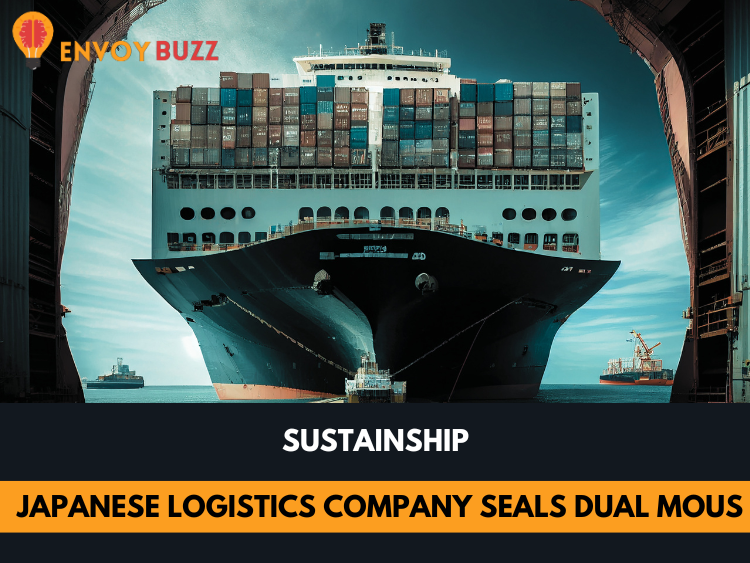A memorandum of understanding (MoU) was signed by MOL and DP World to investigate ways to improve Jebel Ali Port’s auto logistics capabilities and lower carbon emissions in port and maritime applications in the United Arab Emirates and abroad.
Ajay Singh, the MOL Group Managing Executive Officer in charge of the group’s business in the Indian subcontinent and Middle East, and Abdulla bin Damithan, the CEO of DP World GCC, signed a document at the Al Majilis meeting room in Jafza 15 on the same day as COP 28.
Under this agreement, the companies will explore potential business opportunities involving the storage, improvement, and strategic redistribution of fully assembled cars via Jebel Ali Port. The collaboration’s focus on decarbonization aims to advance the local market for eco-friendly fuels in maritime and port operations, along with other areas related to reducing carbon emissions.
“MOL is honored to strengthen our relationship with DPW. MOL is already a major operator at Jebel Ali, and the new initiative aims at investing in facilities to further widen the scope of our operation there. It will contribute to the development of our auto logistics business in the Indian Ocean region, within which Jebel Ali is a highly efficient and modern gateway. The maritime decarbonization project fits in well with our environmental roadmap, and through it we aim to transition several hundreds of vessels calling in the region to clean fuels in coming years, and to grow clean marine fuel supply chains in the GCC and beyond”-Ajay Singh, MOL
“DP World and MOL have a shared vision for sustainability and excellence in global maritime logistics and we look forward to strengthening our partnership through this MoU. With this agreement, we will combine our expertise to explore ways of enhancing the automotive supply chain and supporting decarbonization efforts for the sector in the UAE and the wider Middle East.”-Abdullah bin Damithan, DPW
MOL has additionally entered into an MoU with Bapco Energies to collaboratively develop cross-border transport and sequestration of carbon dioxide (CO2), establishing a value chain for carbon capture and storage (CCS).
Within this collaboration, MOL manages the maritime transportation of liquefied CO2, while Bapco Energies oversees the provision of sequestration sites. CCS stands out as one of the most effective solutions for achieving a low-carbon or decarbonized society. MOL and Bapco Energies are partnering to jointly develop a comprehensive CCS value chain, encompassing separation, capture, transport, injection, and storage of CO2. The collaboration involves the following studies:
- Conducting a study on the estimated cost of utilizing Bapco Energies’ permanent CO2 storage in the Kingdom of Bahrain. This includes assessing the receiving cost of CO2 at the terminal and the unit cost of transporting liquefied CO2 by ship.
- Collaboratively studying potential markets in the Asia Pacific regions and engaging in good-faith discussions about future business structures.
“As a developer and a provider of a variety of social infrastructure business in addition to traditional shipping, MOL is honoured and excited to have an opportunity to collaborate with Bapco Energies. We believe there is a significant synergy in our cooperation to create CCS value chain, also to become a bridge between the Kingdom of Bahrain and Asia-Pacific regions.” –Takeshi Hashimoto, President & CEO of MOL
“We have recently concluded a study confirming that the Kingdom of Bahrain’s CO2 storage capacity exceeds its needs to meet its Net-Zero target by 2060. This opened exciting opportunities for us, including the development of cross-border CO2 transportation and storage. This collaboration with MOL underscores our unwavering dedication to achieving a low-carbon future in line with the Kingdom of Bahrain’s climate targets.” –Mark Thomas, Group CEO of Bapco Energies
For more news on sustainability visit Envoybuzz.

